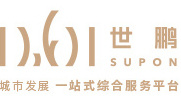The Role of Shi Peng Research and Valuation Institutions in the Game of Urban Renewal Interests -- Taking Shenzhen as an Example
Release time:
2021-01-28 10:12
Source:
Author Shenzhen Shipeng Asset Appraisal Real Estate Land Appraisal Consultants Co., Ltd.General Manager of DivisionShao LifangShenzhen Shipeng Asset Appraisal Real Estate Land Appraisal Consultants Co., Ltd.Division researcherPineWritten in "The Evolution of Valuation Needs and the Sustainable Development of Institutions-The 2019 Annual Conference on Real Estate Valuation in China," 2019.
Abstract
The interest game between the various stakeholders in urban renewal is the focus of urban renewal work, and it is also the key to promote the healthy and orderly development of urban renewal work. This paper analyzes the conflicts of interest between the main stakeholders involved in the urban renewal work in Shenzhen. Valuation agencies play the role of professional evaluation and consulting services for urban renewal, providing professional services for various stakeholders, and helping to solve the problem of interest regulation among various stakeholders.
Key words]urban renewal; interest game; Shenzhen
Book Publication Number]ISBN 978-7-5074-3287-9
citation format]Shao Lifang, Flower Song. The role of valuation institutions in the game of urban renewal interests-a case study of Shenzhen [C]. Proceedings of 2019 China Real Estate Appraisal Conference, 2019:470-473.
Urban renewal is the product of urban development to a certain extent. After more than 40 years of rapid development, Shenzhen's urban scale and population density have increased rapidly, and the existing construction land has almost been exhausted. In order to solve the problem of increasingly tight land resources and lack of space in Shenzhen, Shenzhen issued the "Shenzhen Urban Renewal Measures" in 2009, marking the beginning of urban renewal in Shenzhen.
There are three main development models for urban renewal in Shenzhen: urban renewal of comprehensive renovation, urban renewal of functional change and urban renewal of demolition and reconstruction [1]. At present, Shenzhen urban renewal mainly refers to the demolition and reconstruction of urban renewal, that is, the second development and construction of the city. The general urban renewal projects of demolition and reconstruction are mostly built-up areas, with a large number of buildings on the ground. The demolition and reconstruction meeting and the existing multi-stakeholders (such as private owners, former rural collective economic organizations or their successors referred to as "joint-stock companies", government agencies, developers, etc.), the form and degree of conflict of interest among the relevant parties will also be different. How to balance the interests of various stakeholders is an important task to carry out urban renewal work.
The Stakeholders in 1. Urban Renewal
At the present stage of urban renewal projects in Shenzhen, most of the joint-stock companies participate in urban renewal through collective land and cooperative development with developers, which mainly involves the coordination and balance of interests among government agencies, joint-stock companies and developers.
(I) Government
How to protect the social public interest is the primary task of urban renewal work, and it is also the bottom line for government units to protect the public interest in promoting urban renewal work as a regulatory agency [2]. To this end, government agencies have issued the "Shenzhen Urban Renewal Measures", "Shenzhen Urban Renewal Unit Planning and Formulation Plan Application Guidelines (Trial)", "Shenzhen Urban Renewal Project Affordable Housing Construction Proportion Interim Provisions", "About Strengthening" Notice on Interim Measures to Improve the Implementation of Urban Renewal Work "and other policies to ensure that public interests are protected in urban renewal, demolition and reconstruction.
Government agencies supervise collective assets to ensure that collective assets participate in urban renewal to preserve and increase their value. The participation of village joint-stock companies in urban renewal of their collective land, non-agricultural indicators and properties is an important form of operation for joint-stock companies to operate collective assets, and it is also an important way to maintain and increase the value of collective assets. However, at present, Shenzhen stock companies do not know enough about the relevant policies of urban renewal, lack experience in the process of interest game with developers, and most of them do not occupy a dominant position. Therefore, government agencies need to guide and supervise joint-stock companies to ensure the interests of joint-stock companies.
(II) Joint Stock Company
In the process of rapid urbanization in Shenzhen, a large amount of collective land of joint-stock companies has been acquired by the government in the form of land acquisition, and some of the collective land has been sold to private individuals in the form of "rent and sale", making the collective land resources at the disposal of joint-stock companies more and more scarce. The overall utilization rate of collective land in joint-stock companies is low, which is generally manifested in the problems of small scale of land use, unreasonable layout, and low output efficiency, which contradicts the principle of land conservation and intensive use [3].
In the context of urban renewal, joint-stock company collective land and property participation in urban renewal has become a major trend. Through urban renewal more rational and efficient use of land resources, improve the collective land use value of joint-stock companies become the vision of joint-stock companies. It is the most concerned thing for joint-stock companies and shareholders to ensure that the collective assets of joint-stock companies participate in urban renewal can maintain and increase their value, obtain higher benefits and more properties, and ensure the subsequent sustainable development of joint-stock companies. Therefore, there is a need for a game of interests between the joint-stock company and the developer to gain more rights and interests for the joint-stock company.
(III) Developer
Developers are the main participants in urban renewal projects and the specific developers of the project. Developers as market participants, access to benefits is the ultimate goal of its various business production activities. Since the urban renewal work was carried out in Shenzhen, the profits of all kinds of demolition and reconstruction urban renewal projects are very considerable, and the considerable profits have stimulated the enthusiasm of developers for the development and construction of urban renewal projects.
The type and volume of urban renewal planning indicators are directly related to the expected benefits of developers. Therefore, developers will fully consider the economic feasibility of planning indicators during the declaration stage of urban renewal special planning. The contribution rate of urban renewal projects will directly affect the future development volume of development projects. Developers will try their best to avoid excessive contribution when declaring special planning indicators to minimize their own development costs.
Urban renewal demolition and reconstruction projects are mostly built-up areas, covered with buildings built by private and joint-stock companies, involving the relocation of private properties and collective assets on the ground. Developers need to negotiate demolition with private owners and joint-stock companies to ensure that they can not only meet the needs of private owners and joint-stock companies, but also maximize their own interests.
2. conflicts of interest between different stakeholders
With the continuous promotion of urban renewal in Shenzhen, the secondary development of land in Shenzhen continues to deepen, especially the joint-stock company's collective land participates in urban urban renewal and cooperates with developers, which involves joint-stock companies, the government and developers. The three are related to each other, and there are differences in conflicts of interest.
The conflict of interest between the government and developers is mainly a regular conflict, which is mainly reflected in the contradiction between the developer's development behavior and the social public interest, the overall urban planning and so on. On the one hand, in order to ensure the public interest and the implementation of the overall urban planning, the government will guide and restrict the behavior of developers through certain administrative means according to the policy. On the other hand, in order to maximize their own interests, developers hope to break through the restrictions of urban planning and minimize the contribution rate of the project.
The conflict of interest between the developer and the joint-stock company is mainly transactional. Mainly reflected in the joint-stock company collective land collective property participation in urban renewal, the joint-stock company hopes that the collective assets can be value-added on the basis of value preservation, the higher the value-added rate, the better. Developers, on the other hand, want to satisfy the preservation of collective assets and do not want to release additional benefits to the joint stock company. In the actual negotiation process, it is difficult for the joint-stock company to negotiate with the developer on an equal footing to obtain the due benefits.
The conflict of interest between the government and the joint-stock company mainly focuses on the distribution of public interests. As the regulator of urban renewal projects, the government hopes to consider the needs of the public interest in the area from the overall situation. The joint-stock company is a direct participant in the project and is more likely to share the public benefits of the project from the project itself [4]. At the same time, the government, as a regulatory agency, also shoulders the responsibility of collective asset supervision. In urban renewal projects, government agencies must ensure the preservation and appreciation of collective assets.
The Role of 3. Valuation Institutions in the Game of Urban Renewal
In urban renewal projects, how to find a more reasonable balance of interests to solve the conflict between the government, joint-stock companies and developers, and then reach a consensus, has become the focus of attention of developers, governments and joint-stock companies [5]. This requires a third-party valuation agency, based on the principles of objectivity and impartiality, to use professional skills to provide professional assessment consulting services for various stakeholders.
In Shenzhen, as a third-party consulting service organization, the appraisal agency has deeply participated in many urban renewal projects in the market, and is familiar with urban renewal policies, renewal processes and related businesses. it can provide multi-thought, multi-angle and multi-scheme professional services for the government, developers and joint-stock companies. It provides reference solutions for the government to carry out urban planning management, supervise the development of developers and collective assets, developers to promote projects, joint-stock companies to avoid interest risks, and collective assets to increase value and preserve value.
(I) Government and Developers
Urban renewal is a large project that takes a long time, involves many stakeholders and is difficult to carry out. In the process of promoting the project, the government hopes that in the process of promoting the renewal project, it can conform to the overall planning of the city, long-term development, and meet the social and public interests; developers hope to obtain lower contribution rate, higher floor area ratio, More profits.
How to balance the interests between the government and developers requires professional third-party evaluation and consulting service agencies to intervene in the project from the early stage, use their own rich project experience, and conduct project positioning, planning indicators, and feasibility from a professional perspective. Objective, fair and just analysis, on the basis of achieving a win-win situation for both parties, provide professional services for the government and developers, and better promote the project.
(II) Developers and Joint Stock Companies
A typical urban renewal project involves the collective assets of a joint stock company and therefore involves negotiations between the developer and the joint stock company for the benefits of collective asset relocation. Developers want compensation only to meet the collective assets of the joint stock company, the lower the better.
In the process of negotiation on demolition of urban renewal projects, both joint-stock companies and developers hope to maximize their own interests. On the one hand, the personnel of the joint-stock company are relatively weak in professional skills, unfamiliar with policies, lack of awareness of the value of collective assets, and are in a weak position; on the other hand, the developers are worried that the joint-stock company will ignore the market "asking prices" and cause huge development projects. pressure. At this point, the third-party valuation agency can provide professional services to assist both parties in resolving the balance of interests. The third-party valuation repurchase can rely on its own project experience and combine with the market to evaluate and consult the collective assets participating in the urban renewal project, and obtain fair, just and reasonable value results, so as to provide professional help for both parties to balance their respective interests. In this way, it can not only meet the hope of maintaining and increasing the value of collective assets of joint-stock companies, but also maximize the profits of developers and achieve win-win results for both sides.
(III) Joint Stock Company and Government
In Shenzhen, although the urban renewal work has been carried out for more than ten years, the joint-stock company is still unfamiliar with and unfamiliar with the urban renewal policy and process. As a participant in the urban renewal project, the joint-stock company hopes to obtain more property and public benefits from the project. The government considers more the overall planning of the entire city and district, not just the interests of individual projects. This requires the government to hire a third agency to interpret the urban renewal policy of the joint-stock company and help some companies understand the urban renewal project planning, so as to reduce the contradiction between the two sides caused by the lack of familiarity with the policy.
In addition, government agencies, as regulators, also bear the responsibility of collective asset supervision. In the process of filing collective assets for urban renewal, the government needs to ensure that the collective assets participating in urban renewal maintain and increase their value. This requires a third-party valuation agency, as a service agency of the government, to conduct a professional review of the collective asset appraisal report submitted by the joint stock company to ensure that the collective assets of the joint stock company are maintained and increased in value, to provide professional advice to government agencies, and to achieve the purpose of government supervision of collective assets.
4. epilogue
Shenzhen is the first city in the country to carry out urban renewal work, but Shenzhen's urban renewal work still has a long way to go. Urban renewal work involves many stakeholders, through the analysis of the various stakeholders in urban renewal, it is not only conducive to balancing the interests of the various subjects, but also conducive to the promotion of urban renewal work. The evaluation and consulting services of real estate appraisal agencies in urban renewal have played an active role in the promotion of urban renewal and promoted the progress of urban renewal in Shenzhen.
References:
[1] Shenzhen Municipal People's Government. Shenzhen urban renewal measures [Z]. 2016-12-06.
[2] zong chuanhong, hu yubo. Urban Renewal and Rational Appeal from the Perspective of Public Interest [J]. Shanghai Urban Management, 2014,5:22-25.
[3] Liu Chengming, Li Guicai, Tong De. Study on the entry path of collective construction land with separation of rights and land: A case study of non-agricultural construction land in Shenzhen [J]. Urban Development Research, 2018,5(7):55-60.
[4] Ren Shaobin. Conflict of Interest and Planning Coordination in Urban Renewal [J]. Modern Urban Studies, 2011(01):12-16 (in Chinese).
[5] Yue Jun, Chen Xiaoxiang, Liu Ting. Discussion on the Regulation and Protection Mechanism of Interests in Urban Renewal: A Case Study of Shenzhen City [J]. Modern Urban Studies, 2016,12:111-116.).
Next Page
Latest News

 Search
Search

